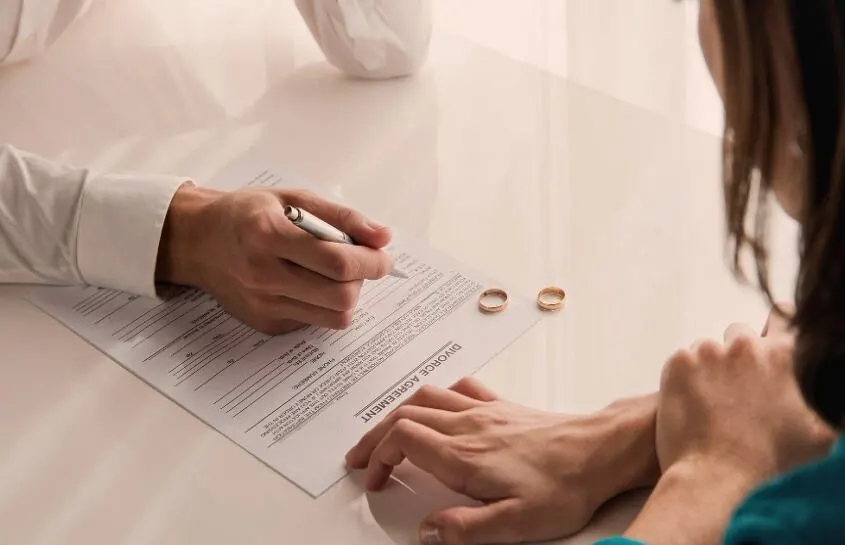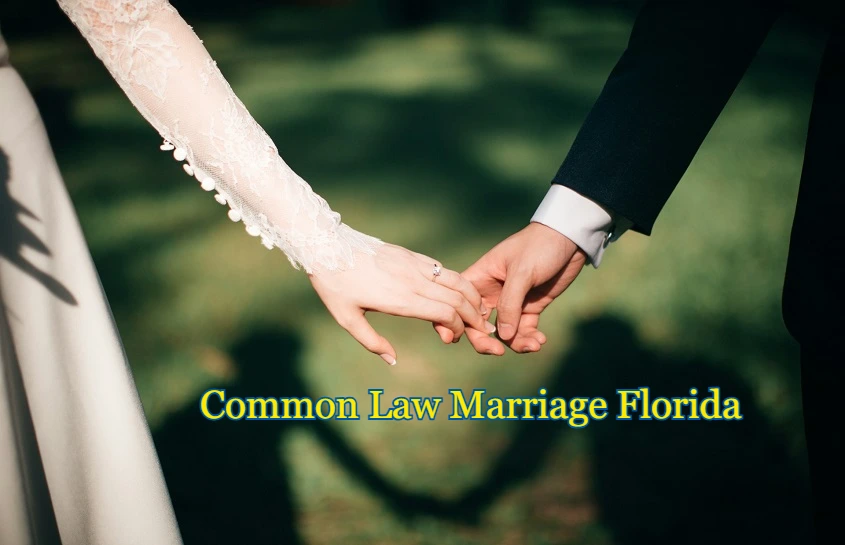People fall in love, move in together, build a life, and sometimes, forget about the legal side of things. In Florida, that can turn into a real mess if the relationship ends or someone passes away. Common Law Marriage Florida is often misunderstood, especially when it comes to things like who owns the house or what happens to shared money.
If you’ve been living with your partner for years, this article will help you understand where the law draws the line. You might be surprised by what Florida does—and doesn’t—recognize as a marriage. And when it comes to property, it’s even more important to know your rights.
Is There Common Law Marriage Florida? What the Law Says
Let’s clear this up first: Is Florida a common law marriage state? The short answer is no, at least not for new relationships.
Florida doesn’t allow you to form a new common law marriage. That means living together for five, ten, even twenty years won’t automatically give you legal spouse status. This has been the case since 1968, when Florida formally stopped recognizing new common law unions.
But there’s a twist.
If you entered into a valid common law marriage in another state and then moved to Florida, the state will recognize it. That’s because of a legal principle called “full faith and credit.” So, if you and your partner tied the knot under common law rules in, say, Texas or Colorado, and then relocated to Florida, you’re still legally married in Florida’s eyes.
Florida Common Law Marriage Rules and Misconceptions

One of the most common misunderstandings is that living together long enough means you’re automatically married. This belief has led many couples to act as if they have legal protection when they actually don’t.
So, how many years do you need to live together for Florida to consider you married? Legally, zero. The “Common law marriage in Florida how many years” question has no answer, because the number of years doesn’t matter in this state.
This can be a problem when couples:
- Share a mortgage
- Buy cars together
- Open joint bank accounts
- Name each other on health insurance
None of these actions create a legal marriage in Florida. If you’re not married in the eyes of the law, your rights to property, support, and decision-making may be limited or non-existent.
Florida Common Law Property: Who Actually Owns What?
Let’s get into something messy—property and who really owns it when you’re not married in Florida.
If you were legally hitched, things would be more clear. The law usually sees anything earned or bought during marriage as shared stuff. But in Florida, if you’re not married, things don’t work that way. Florida’s property rules just don’t treat unmarried couples the same.
So, what does that mean in real life? Here’s the deal:
- Got your name on the car title? It’s yours, plain and simple.
- Both names on a deed? You both might own it—but only how it’s written legally.
- One person paid for something big—say, a boat or furniture? That person owns it, even if the other helped out in other ways.
See where this gets tricky? Breakups can turn into courtroom fights. Or if someone passes away without a will, their partner might be left with nothing. No legal marriage and no paperwork means you could lose out, even if you lived together for 20 years.
Is common law marriage state of Florida? Not Anymore
While some states still recognize new common law marriages, Florida is not one of them. So, to clarify: Is common law marriage state of Florida? Not since 1968.
Before that, couples could form a valid marriage simply by agreeing to be married and living together as husband and wife. But today, you need a marriage license and formal ceremony to gain legal recognition in Florida.
That said, if your common law marriage began in another state that permits it, Florida will honor it. But you’ll need to prove it.
How to Prove Common Law Marriage in Florida (If Started Elsewhere)
If you’re relying on a common law marriage from another state, you might wonder: How to prove common law marriage in Florida? It’s not always easy.
Here’s what helps:
- Joint tax returns showing “married filing jointly”
- Health insurance policies naming each other as spouse
- Shared property titles with “husband and wife” listed
- Affidavits from friends or family confirming the relationship
- Wills or legal documents referring to one another as spouse
The more documentation you have, the stronger your case will be. It’s especially important if one partner becomes ill, dies, or if you separate and want a fair share of property.
Common Law Marriage Florida: What Changed in 2025?

Still think Florida might recognize your long-term relationship as a legal marriage? It hasn’t happened.
In 2025, common law marriage Florida remains off the table. The state doesn’t allow couples to gain marital rights just by living together—no matter how many years you’ve shared a home, a bed, or a life.
That said, more couples are waking up to what this really means. They’re not just assuming things will work out. Instead, they’re signing cohabitation agreements, setting up wills, and naming healthcare surrogates. These legal documents are becoming the new standard for people who want security without tying the knot.
Florida law hasn’t changed. But people have. They’re realizing that if the law won’t protect them automatically, they’ve got to do it themselves.
Protecting Yourself Without Common Law Marriage Florida
If you’re in a long-term relationship but not legally married, consider these tools:
- Cohabitation Agreement: This contract outlines how you and your partner handle finances, property, and responsibilities.
- Joint Ownership: Put both names on property titles to share ownership rights legally.
- Power of Attorney: Allows your partner to act on your behalf in medical or financial matters.
- Last Will and Testament: Ensures your partner inherits your property if you pass away.
- Beneficiary Designations: On insurance policies, retirement accounts, and banking, keep them updated.
These steps don’t require a marriage license but can give you similar protections.
Common Scenarios Florida Couples Should Know
Here are a few real-life situations to consider:
- Breakup After 15 Years Together: You lived together for over a decade. You split. Who gets the house? If it’s in one person’s name only, the other may walk away with nothing.
- Unexpected Illness: One partner is hospitalized. If you’re not legally married and don’t have a power of attorney, you may have no say in treatment decisions.
- Death Without a Will: The surviving partner may not inherit anything—especially if there are children from a previous relationship.
These are not just hypotheticals. They happen every day in Florida.
Final Thoughts: Know Your Rights in Florida
Been living with your partner in Florida? It probably feels like marriage—you split the bills, maybe raise kids, and casually call each other husband or wife. But here’s the surprise: legally, Florida doesn’t count it as marriage. Unless there’s paperwork to prove things, you’re not automatically covered when it comes to stuff like property, health decisions, or what happens if you break up.
That’s why understanding Common Law Marriage Florida rules really matters. Love might come easy, but the law? Not so much. Take the time to sort out the paperwork. A few steps today can save you a world of headaches down the road.
FAQs
A: No time limit triggers a common law marriage Florida. The state does not recognize new common law marriages, no matter how long you’ve lived together.
A: Only if your common law marriage was legally established in another state that permits it. You must provide proof of the relationship’s validity before Florida will recognize it.
A: This is a myth. Florida has no 7-year rule for common law marriage. Whether you’ve lived together for 7 years or 17, it does not create a legal marriage under Florida law.
A: No, Florida doesn’t allow new common law marriages, but it honors valid ones from other states.
